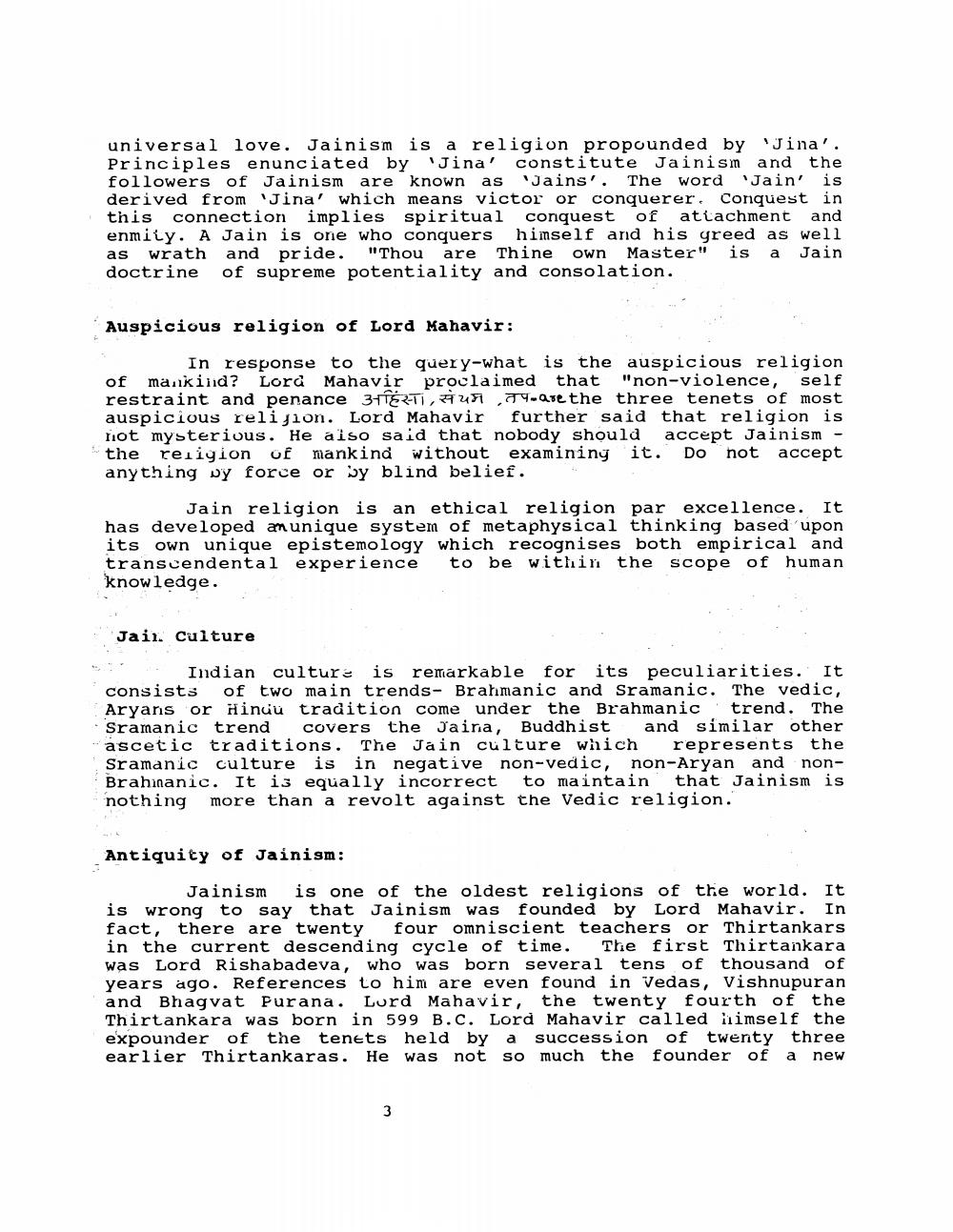________________
universal love. Jainism is a religion propounded by 'Jina'. Principles enunciated by 'Jina' constitute Jainism and the followers of Jainism are known as 'Jains'. The word 'Jain' is derived from 'Jina' which means victor or conquerer. Conquest in this connection implies spiritual conquest of attachment and enmity. A Jain is one who conquers himself and his greed as well as wrath and pride. "Thou are Thine own Master" is a Jain doctrine of supreme potentiality and consolation.
Auspicious religion of Lord Mahavir:
In response to the query-what is the auspicious religion of mankind? Lord Mahavir proclaimed that "non-violence, self restraint and penance अहिंसा, संयम, तप are the three tenets of most auspicious religion. Lord Mahavir further said that religion is not mysterious. He also said that nobody should accept Jainism - the religion of mankind without examining it. Do not accept anything by force or by blind belief.
Jain religion is an ethical religion par excellence. It has developed an unique system of metaphysical thinking based upon its own unique epistemology which recognises both empirical and transcendental experience to be within the scope of human knowledge.
Jai. Culture
Indian culture is remarkable for its peculiarities. It consists of two main trends- Brahmanic and Sramanic. The vedic, Aryans or Hindu tradition come under the Brahmanic trend. The Sramanic trend covers the Jaina, Buddhist and similar other ascetic traditions. The Jain culture which represents the Sramanic culture is in negative non-vedic, non-Aryan and nonBrahimanic. It is equally incorrect to maintain that Jainism is nothing more than a revolt against the Vedic religion.
Antiquity of Jainism:
Jainism is one of the oldest religions of the world. It is wrong to say that Jainism was founded by Lord Mahavir. In fact, there are twenty four omniscient teachers or Thirtankars in the current descending cycle of time. The first Thirtankara was Lord Rishabadeva, who was born several tens of thousand of years ago. References to him are even found in Vedas, Vishnupuran and Bhagvat Purana. Lord Mahavir, the twenty fourth of the Thirtankara was born in 599 B.C. Lord Mahavir called himself the expounder of the tenets held by a succession of twenty three earlier Thirtankaras. He was not so much the founder of a new
3




